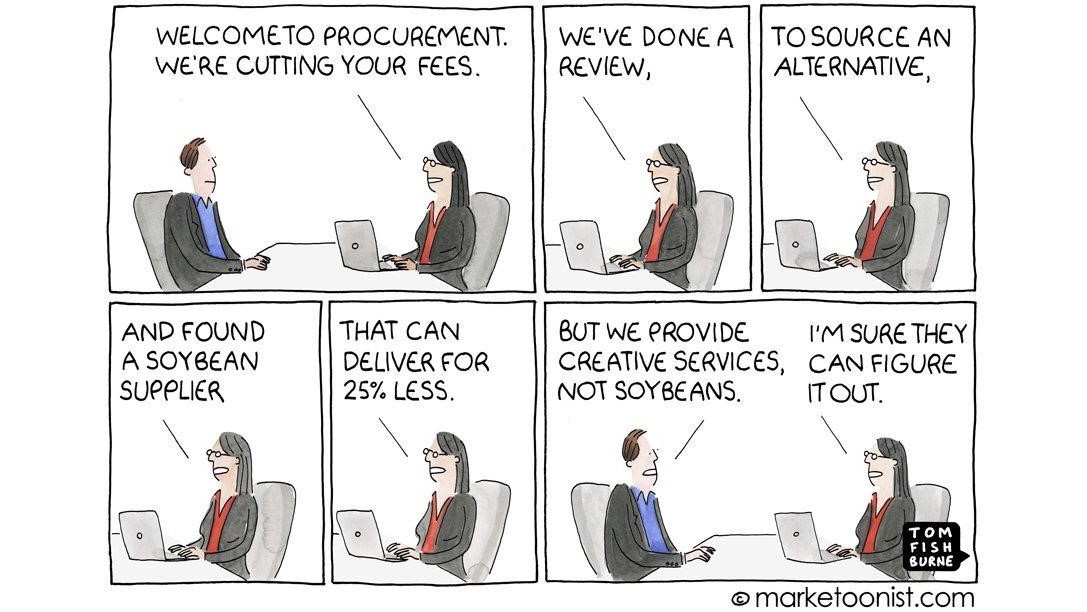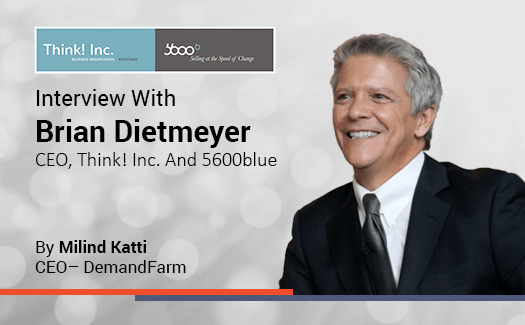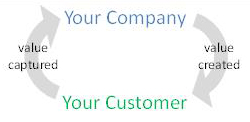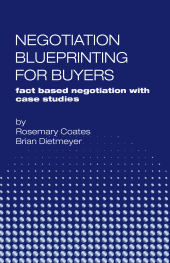 So often in selling we hear about “relationship” as the reason we win deals. I am curious about your opinion here. Would you buy an inferior solution from someone you like better than someone else? Conversely, if you find a great solution at a fair price, but don't really like the salesperson, would you buy that solution? As a "victim" of multiple back surgeries, I have had the opportunity to experience bedside manner on at least two occasions. When interviewing doctors and getting second opinions, I have always chosen the doctor I felt was most qualified, even if she was not a great communicator or someone I didn’t feel aligned with on a human level. That being said, all else being completely equal, I think we would choose the person we felt most comfortable with and would tip the scales in our way. This doesn't always happen in, say elections. Research shows that voters would choose that person they would “rather have a beer with.” Which could be another blog entirely!
So often in selling we hear about “relationship” as the reason we win deals. I am curious about your opinion here. Would you buy an inferior solution from someone you like better than someone else? Conversely, if you find a great solution at a fair price, but don't really like the salesperson, would you buy that solution? As a "victim" of multiple back surgeries, I have had the opportunity to experience bedside manner on at least two occasions. When interviewing doctors and getting second opinions, I have always chosen the doctor I felt was most qualified, even if she was not a great communicator or someone I didn’t feel aligned with on a human level. That being said, all else being completely equal, I think we would choose the person we felt most comfortable with and would tip the scales in our way. This doesn't always happen in, say elections. Research shows that voters would choose that person they would “rather have a beer with.” Which could be another blog entirely!
B2B Street Fighting Blog
are relationships all that important in selling?
Posted by Brian Dietmeyer on Thu, Jan 18, 2018 @ 03:38 PM
turn your entire organization into a negotiation powerhouse!
Posted by Brian Dietmeyer on Tue, Jan 09, 2018 @ 04:10 PM
Sales organizations spend a great deal of time and money on negotiation skills training. Much of that investment is sub-optimal and in essence, sales teams are being trained on how to execute your company negotiation strategy. The problem is there is still a prevalent view that negotiation is a “soft skill.” When we execute training without a broader organization strategy improvement, we are, in substance, automating a broken process.
We recently consulted with a global account organization where their customers in France were bypassing their local account teams and buying from the German account teams as the prices and terms were better! This type of incoherence not only lowers margin, it creates a lack of trust.
Read MoreA blog from Buyer/Seller Insights points out that there is bad buying just like there is bad selling. They go further to suggest that sellers who can help procurement buy better will achieve a competitive advantage. We couldn't agree more.
One of the core problems we see is that sellers don't understand the role of procurement professionals and therefore get anchored on the price conversation with buyers. Part of this misunderstanding is this: how procurement buyers articulate their role–and the reality of what their role is, are actually two different things.
Read MoreTags: negotiation skills for sales, business negotiations, brian dietmeyer, competitive advantage, Negotiating with procurement, speaking the language of procurement
Recently, Milind Katti, CEO & Co-Founder of DemandFarm, interviewed Brian Dietmeyer. The conversation started out with this question. "Brian, tell us about your journey as a key account management professional and how do you help companies achieve growth through focusing on their strategic parternship with the key account?"
Read MoreTags: brian dietmeyer
 We all know the world of buying and selling is undergoing the biggest transformation in the last 20 years, but let’s add some detail to that. What salespeople are challenged to do now is “sell at the speed of change.” There are four areas of change that impact the conversations salespeople need to have on a daily basis. The first are changes in your value proposition, new products, services, support, technology added, old ones deleted. The second are the same changes happening real time for your competitors' value proposition. The third are changes in your customer needs, perhaps driven by regulatory or geopolitical events. And finally, changes in your strategy that are executed by the sales force. These changes could include a new approach to pricing, vertical markets, new ideal customer criteria, etc.
We all know the world of buying and selling is undergoing the biggest transformation in the last 20 years, but let’s add some detail to that. What salespeople are challenged to do now is “sell at the speed of change.” There are four areas of change that impact the conversations salespeople need to have on a daily basis. The first are changes in your value proposition, new products, services, support, technology added, old ones deleted. The second are the same changes happening real time for your competitors' value proposition. The third are changes in your customer needs, perhaps driven by regulatory or geopolitical events. And finally, changes in your strategy that are executed by the sales force. These changes could include a new approach to pricing, vertical markets, new ideal customer criteria, etc.
Recently we executed a scan against these four areas for a global logistics firm. We tallied 27 changes across the four areas in the last 90 days. We then asked those executives how those changes are synthesized and communicated to the sales force in a way that allows words to come out of their mouths that reflect their value, competitive value, customer needs and execution of leader priorities real time. Their answer was, “we’re not sure.”
Columbia professor Rita McGrath recently released her book (sadly enough) entitled “The End of Competitive Advantage.” She points out that the annual planning cycle based around leveraging your long term sustainable advantage is now gone…forever. It has been replaced by a series of short term transient advantages. In another tech firm we were told by a senior executive that the equivalent of annual planning now happens quarterly. Think about that… it’s the reality of competing today.
Organizations now need to be adept at building systems and competency to capture all these changes, synthesize them and create a knowledge conduit for sellers. It is now organizational competence that will drive individual skills for sales. Sellers need an entirely new set of tools to compete today and at the core of those tools is real time market knowledge to lead the customer, and the skill to have those conversations.
Tags: brian dietmeyer
We recently asked Brian Dietmeyer, President and CEO of Think! Inc. to talk to us about this exact question. Listen to his thoughts and then tell us what you think!
leveling the playing field when negotiating
Posted by Brian Dietmeyer on Wed, Jun 12, 2013 @ 04:39 PM
What we’re hearing today from procurement professionals is a desire to “increase internal share of spend and reduce rogue buys.” As a salesperson if you’re not sure what this means, you need to know.
Today. if a B2B company is to survive, much less flourish, it must be able to achieve sustainable organic growth. And there are many resources available to help such companies develop the two primary drivers they need to do so— providing differentiated customer value and being compensated in alignment with that value.
Typically sales organizations approach training consultants to relieve a source of acute pain. Most often this pain is felt as commoditization attempts by professional buyers, price and margin pressure, irrational competitive behavior, and internal stakeholder dissatisfaction with sales.
Companies generally set themselves up for failure when they search for a stand-alone training class that focuses on solving acutely painful elements. Ultimately, they omit consideration of less obvious needs, ones that might be causing the pain.
Am I the only one who is mystified by this? There are three days left to go in an auction on ebay…3 people have been outbidding one another for the last two days in an attempt to "win." The only one winning is the seller as the price goes up and up. Is there any reason why we wouldn't wait until 5 minutes, or as I do, 1 minute left to go in the auction? There is a zero percent chance someone will "win" bidding one, two or three days in advance, yet that whole model is predicated on people acting irrationally.
If you think this doesn't happen in B2B negotiations, have you ever been part of a reverse auction or watched competitive bidding drive down pricing and give away free service until there is no margin left in the deal for the "winner?"
Think! named to Inc. list of
America's fastest growing private companies
America's fastest growing private companies













